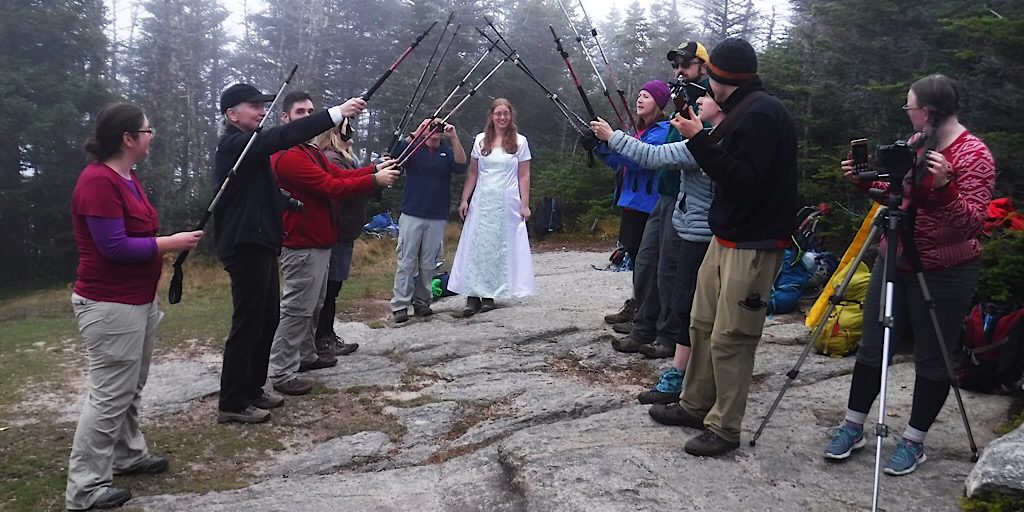
Champagne at 5000-feet is allowable.
We know what you meant
But as was mentioned, you can do no wrong. If we know the intent is real, that the bride and groom are there on their own volition, are ready, willing, and able to be married, there’s no problem. They can confirm their intent later, even after the ceremony, if they get impossibly tongue-tied or emotional during. We get it.

Fido is allowable… if the venue allows it.
The real rules
What actually makes it legal, after the intention is convincingly conveyed, is that you can confirm your identity, our Justice of the Peace signs your marriage license — which must be in hand at the time of the ceremony — and we mail it in within ten days (we usually do it the next business day). Oh, and that the balance is paid. The ceremony is just that. It’s a celebration. A time for the bride and groom to come together to communicate what is in their heart, to confirm or deny their love, and that they want to make a permanent, legal connection.
We are here to help
When we perform services we encourage all parties meeting ahead of time. There is no charge for this “pre-meet,” though it is generally when we ask for a deposit. During this time we discuss the ceremony and the vows, and whether a rehearsal is wanted or needed. (We find that the latter may be done adequately during the pre-meet, saving time and money.) We are there to help by doing it all for you, by showing you the best ways to incorporate your words or your vows into our standard ceremony, or by letting you do the whole thing telling us precisely what to do and what to say. It’s your ceremony. It’s your day. You may star and direct. You get the vibe of choice. You can relax and enjoy the moment. Now isn’t that good news?

Hikers have their own traditions, though some may be repurposed on the spot. This is also allowable.
